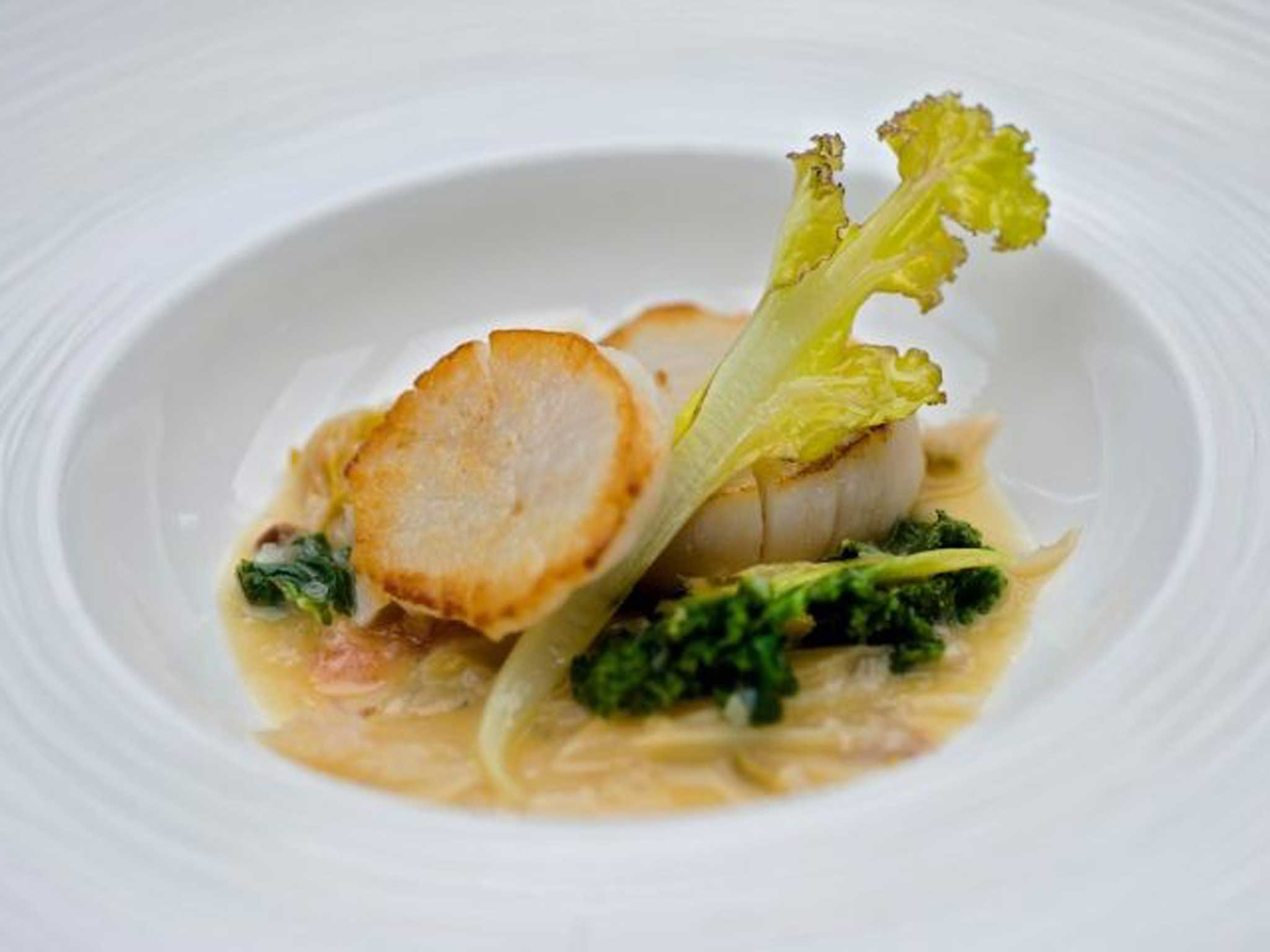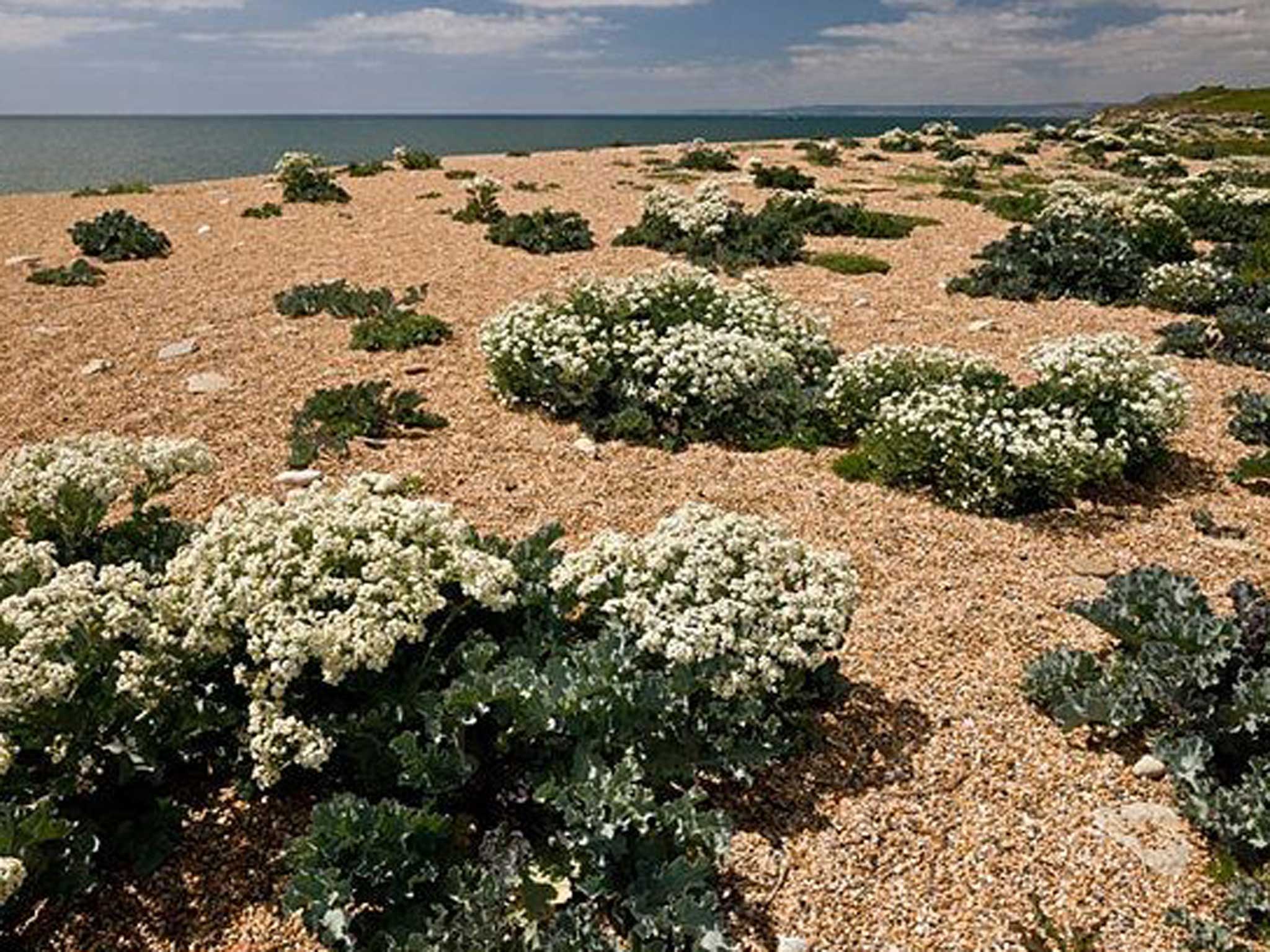Like seaweed? Like kale? You'll love sea kale!
Eaten to extinction by Victorians, chefs want the vegetable back on the menu

A vegetable that was a Victorian favourite, but then almost disappeared from our plates, has found itself back at the top of the hip list for chefs across the British Isles.
As commercial growers nurture their first crops of sea kale in decades, and green-fingered foodies plant their own seeds, fans hunt for sea kale recipes online.
Its fans include top chefs Tom Kitchin and Raymond Blanc, who grows his own at Le Manoir aux Quat'Saisons in Oxfordshire. They cherish sea kale for its white, forced stems, which are ready between January and March. They taste like a cross between asparagus and celery and are often served with that classic asparagus accompaniment, hollandaise sauce. Later in the year, fried sea kale leaves can be served.
Sea kale (Crambe maritima) is a member of the brassica family and native to Britain. It has been in especially hot demand this year because the season has been short after last year's brutally cold spring destroyed growers' root stocks, which take years to become well established.
For Heather and Sandy Pattullo at Eassie Farms, in Angus, the season finished two weeks ago. But they'll have sea kale crowns for people to plant themselves later this year. "It's very labour-intensive and terribly fiddly, but it suits us because we also grow asparagus," Ms Pattullo said.

Peter Taylor, at Westland Nurseries in Worcestershire, is another commercial grower, who grew his first crop four years ago. He has hopes of extending the season to three or four months, or even year round.
He ascribes the plant's new fashionable status to "chefs becoming more down to earth in what they're trying to create. That's what starts it. Plus foraging is very popular. Everybody is expanding their repertoire."
There is confusion online over whether sea kale, which grows naturally on the edge of shingle beaches, is protected, with many fans adamant that it shouldn't be picked. But the wild plant conservation charity Plantlife told The Independent on Sunday that it was fine to pick small amounts. "It's not a protected species, although it was nationally scarce and has been lost from a third of its range, particularly in the South-west."
But Kent Wildlife Trust disagrees. "We would strongly discourage people from picking sea kale as it is protected under the Wildlife & Countryside Act (1981) and must not be picked without permission from the landowner," Bryony Chapman, its marine policy officer, said.
The trouble arose because sea kale was a popular vegetable for Victorians, who forced the shoots by piling sand and stones around the plants so they could harvest them for market. Wild stocks were decimated, prompting a ban in the early 20th century.
Ms Chapman added: "While Kent Wildlife Trust thinks foraging can be great for getting people in touch with the natural environment, over-harvesting must be avoided and, where certain plants are known to be scarce, left well alone – otherwise this could lead to consequences for the local ecosystem."
Richard Harrington, at the Marine Conservation Society, said people should cultivate it themselves. "There's no need to remove it from seashores because the seeds are available to grow in the garden."
Lucia Stuart, who runs The Wild Kitchen in Deal, said sea kale was just one of "many delicious edible coastal vegetables". "It has tough leaves, but that toughness makes them delicious when cooked. I fry mine in olive oil until they're crispy."
Join our commenting forum
Join thought-provoking conversations, follow other Independent readers and see their replies
Comments